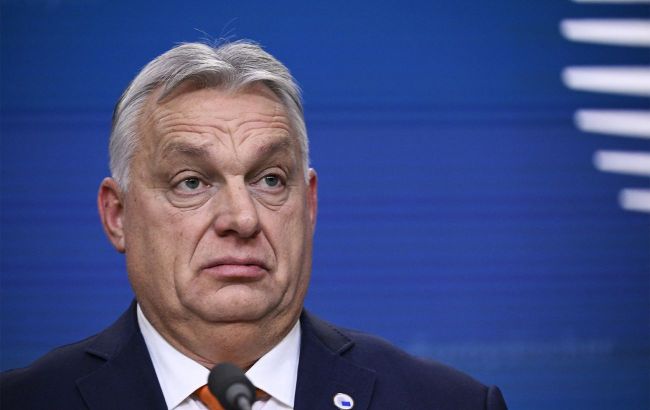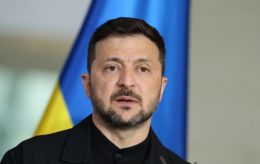Orbán wants to cut aid to Ukrainians: What Hungarian PM said
 Photo: Hungarian Prime Minister Viktor Orbán (Getty Images)
Photo: Hungarian Prime Minister Viktor Orbán (Getty Images)
Hungarian Prime Minister Viktor Orbán stated that Ukrainian refugees in his country receive too much aid. He hinted at a possible reduction in support in his post on X.
Orbán said that the assistance given to Ukrainian refugees exceeds what unemployed Hungarians receive.
The Hungarian Prime Minister noted that "there is no free money" and that Ukrainians should not be receiving more support than Hungarian nationals. According to him, when Russia launched its full-scale invasion, Hungary accepted thousands of refugees from Ukraine.
"We provided for all of them, we helped all of them. Even today, there are tens of thousands of Ukrainians in Hungary," he said.
Orbán emphasized that Hungary is supposedly "the only country" that offered Ukrainians the same assistance as Hungarians.
"So if a Hungarian receives unemployment benefits for three months and after that must take part in public works, then, my dear Ukrainian friend, you can get as much as we have. We’ll give you half of our shirt, but perhaps not the whole of it," the Hungarian Prime Minister said.
According to the latest Eurostat data, 40,000 Ukrainians had temporary protection status in Hungary.
Orbán once again used manipulation in his statements. For example, in Germany, Ukrainians with temporary protection status receive the same aid as the country's citizens.
Hungary blocks Ukraine’s EU accession
Hungary is blocking the launch of negotiations on Ukraine’s accession to the EU.
Prime Minister Viktor Orbán is fueling anti-Ukrainian sentiment in Hungary. Moreover, Orbán recently found himself at the center of a scandal after failing to locate Ukraine on a map.
Last year, Hungary simplified entry requirements for citizens of Russia and Belarus. They are no longer required to undergo special checks when entering the country. Lithuania’s Foreign Minister stated that this move could pose a threat to the security of the entire European Union.
In addition, Hungary has warned that it will start sending migrants appearing at its borders directly to Brussels if it fails to resolve its dispute with the EU over sanctions related to its asylum policies.

